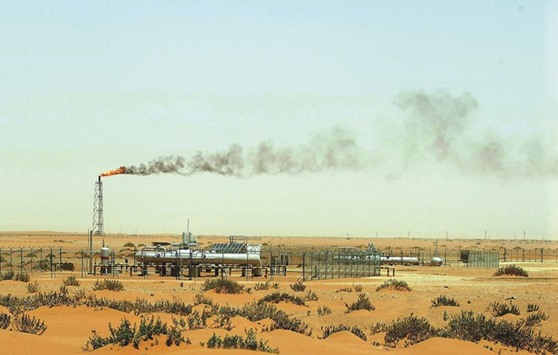The initial public offering of Saudi Arabian Oil Co remains on track while the government considers how to meet all its objectives from the sale of a stake in the world’s biggest oil company, the kingdom’s energy minister said.
Saudi Arabia hopes to list the company, also known as Saudi Aramco, in early 2018, Energy Minister Khalid al-Falih said in Los Angeles on Thursday. The process requires time as the government considers how to “optimise” Aramco’s value for both potential shareholders and for the kingdom as it pursues a plan to diversify its economy, al-Falih said.
“We have to optimise - optimise for the kingdom’s interest as the owners of the company and the owners of the resource today, optimise for the investors who have to enter into this,” al-Falih said. “Their interests have to be protected.”
Saudi Arabia plans to raise about $100bn by selling about 5% of Aramco as part of Deputy Crown Prince Mohammed bin Salman’s initiative to transform the kingdom’s economy for a post-hydrocarbon age. Ultimately, the government wants the private sector to account for two-thirds of the economy, al-Falih said on Thursday.
Considerations extend beyond achieving the maximum IPO valuation, al-Falih said. The kingdom aims to create “the most valuable asset company” in terms of “its capability, its potential to grow, its potential to create value for all of the stakeholders,” he said.
No decision has been made yet on where to list the company, he said. While all the major exchanges are “vying” to host Aramco, each has strengths and weaknesses, and - in some cases - risks. Some locations present drawbacks including in “terms of legal exposure and tax exposure,” he said.
Saudi Arabia’s national stock exchange, the Tadawul, will be able to accommodate a company on the scale of Aramco once the exchange’s expansion plans are complete, he said. The Tadawul, one of the world’s most closed stock markets, is increasing international participation after allowing limited foreign direct investment last June.
Al-Falih also gave his views on oil market conditions ahead of informal Opec talks scheduled for next month in Algeria. While it would be “positive” for producers to agree on limiting production, more substantial action, such as output cuts, aren’t necessary because the global oversupply is already subsiding, he said.

A picture taken on June 23, 2008 shows a flame from a Saudi Aramco oil facility in the desert near the oil-rich area of Khouris, 160km east of the Saudi capital Riyadh. Saudi Arabia hopes to list the company, also known as Saudi Aramco, in early 2018, Energy Minister Khalid al-Falih said in Los Angeles on Thursday.
